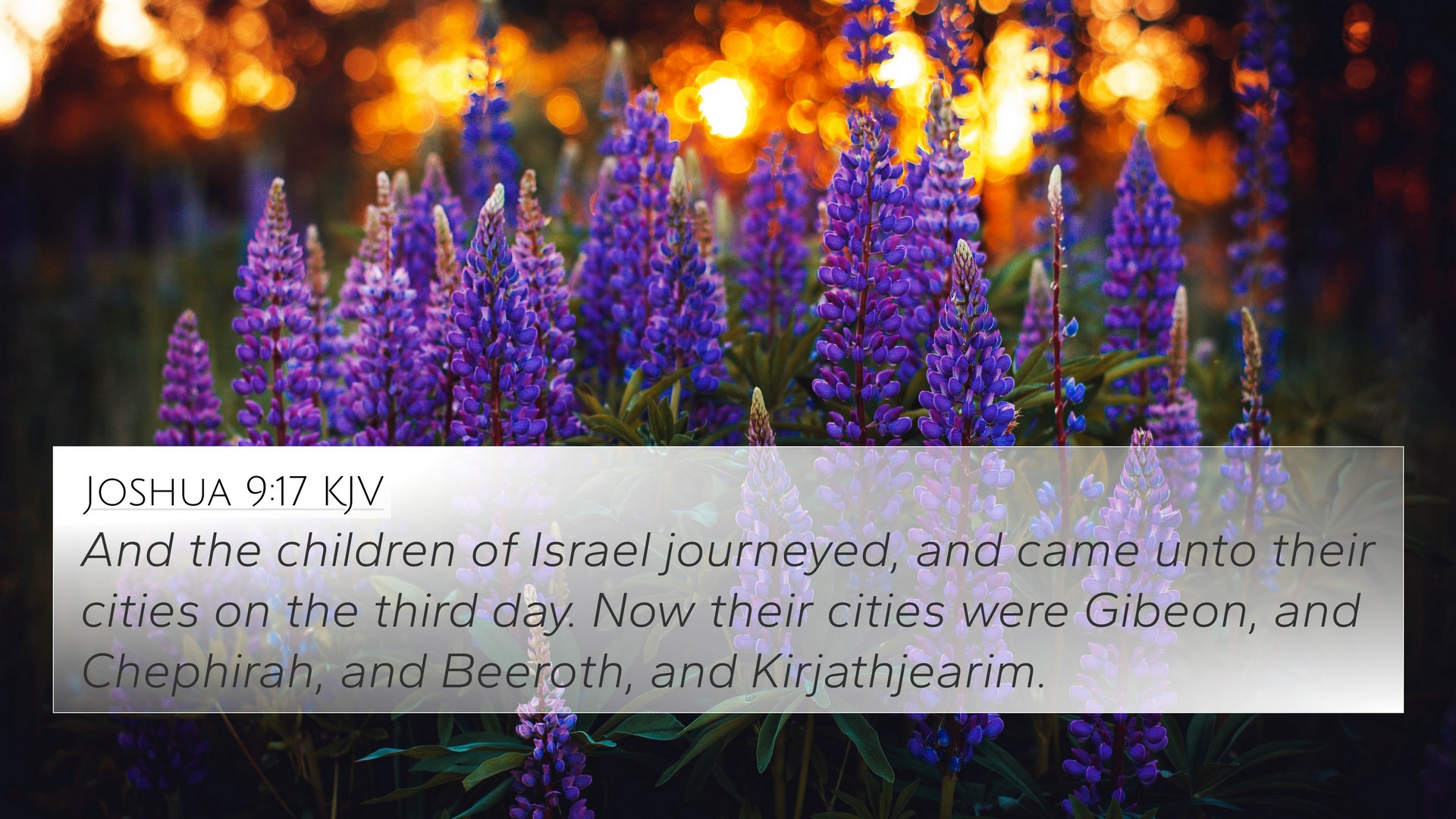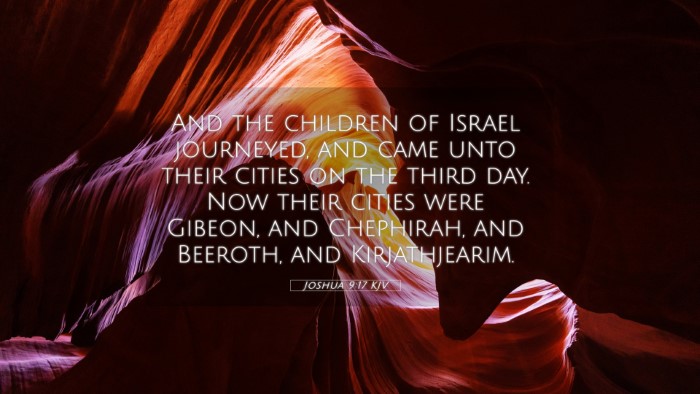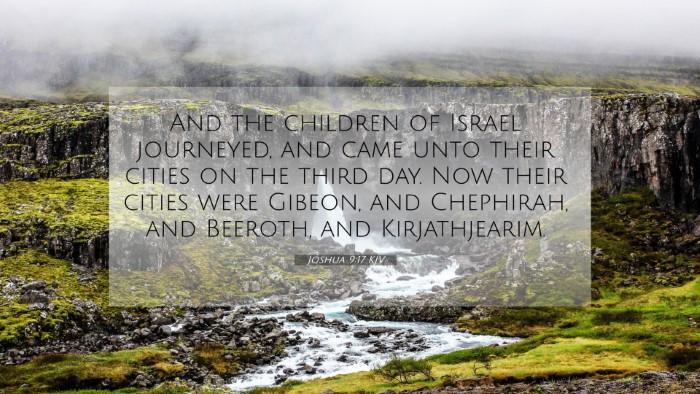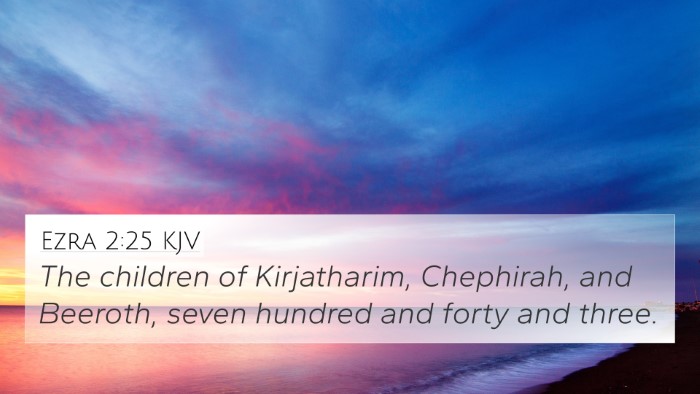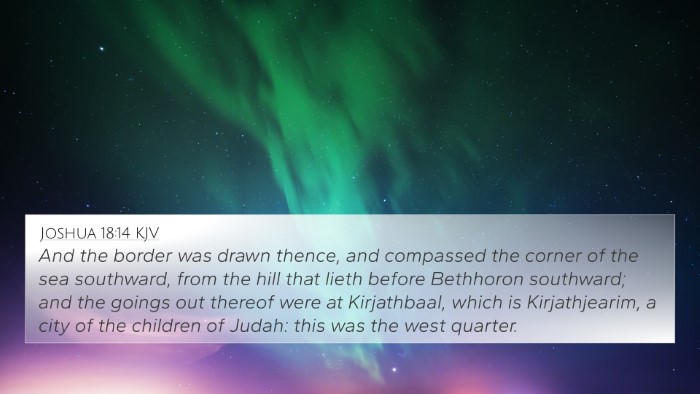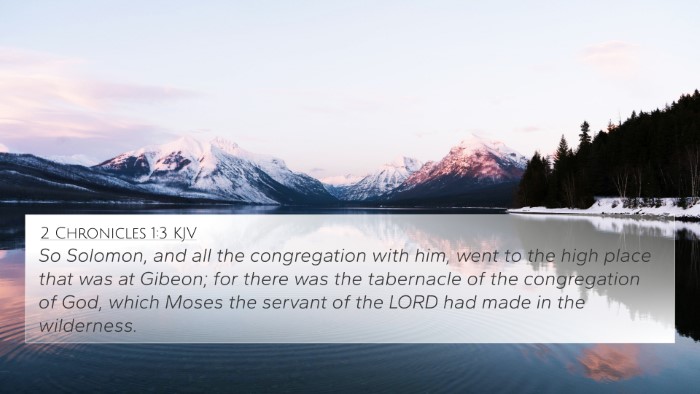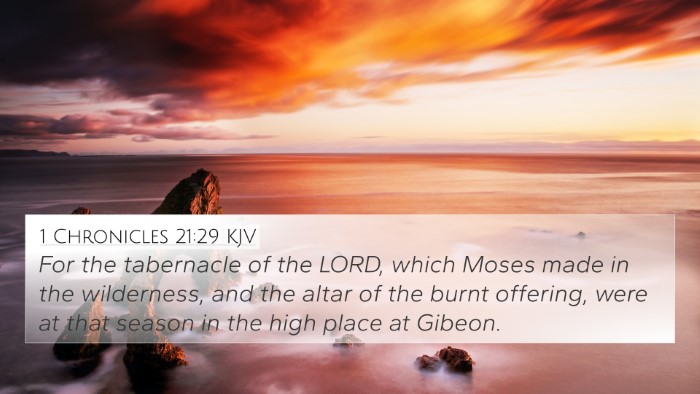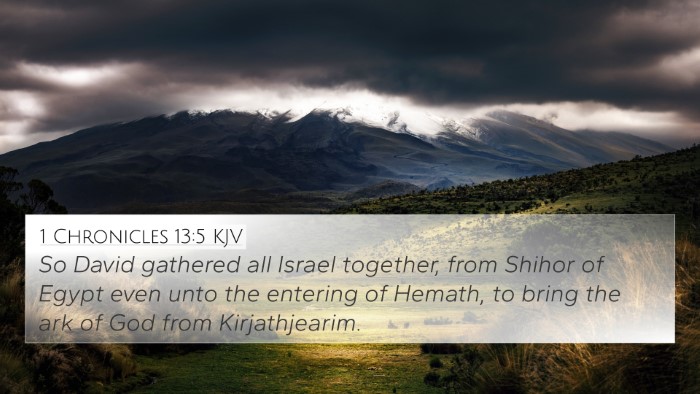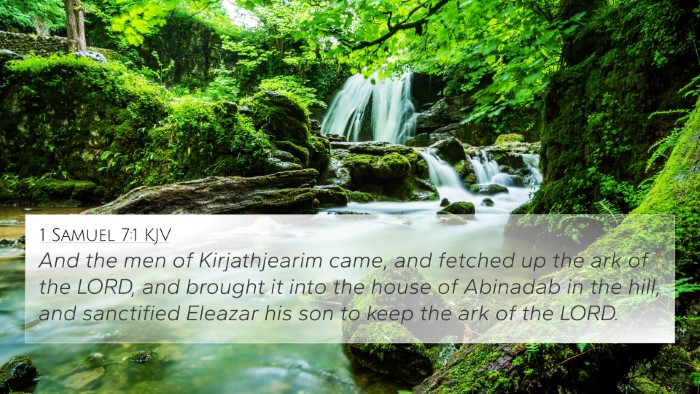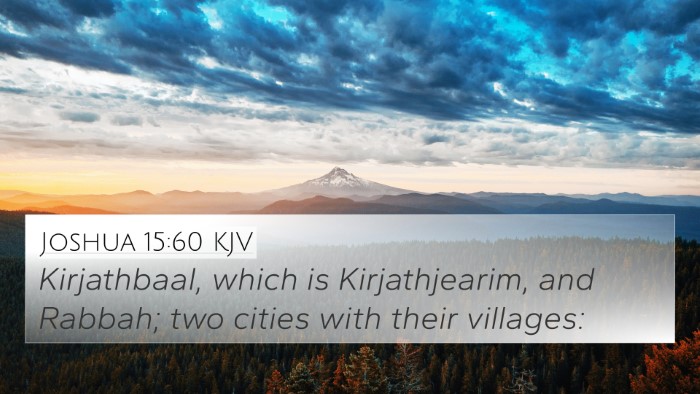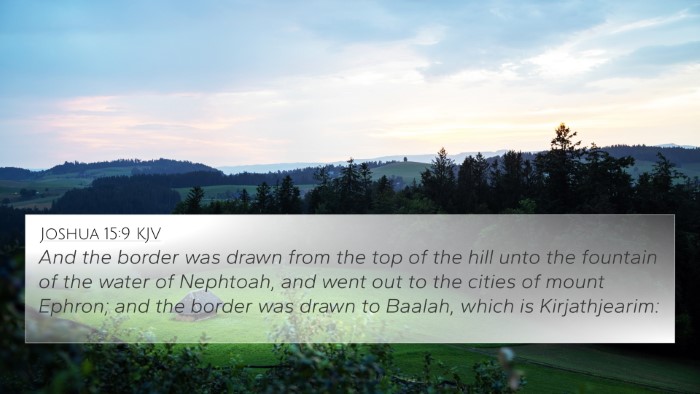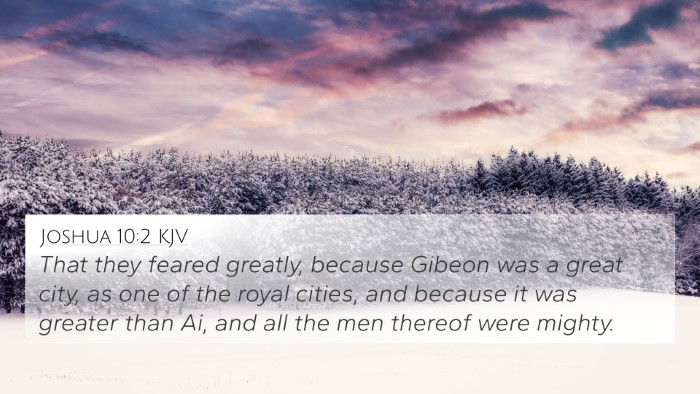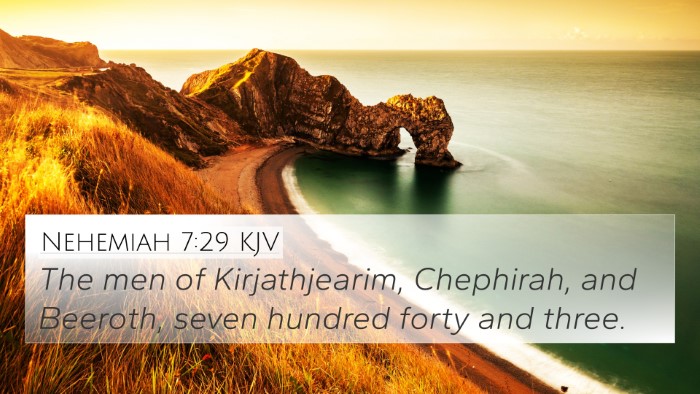Understanding Joshua 9:17
Joshua 9:17 states: "And the children of Israel journeyed, and came unto their cities on the third day. Now their cities were Gibeon, and Chephirah, and Beeroth, and Kirjath-jearim."
This verse marks a significant moment in the narrative of the Israelites as they enter the Promised Land. The mention of cities such as Gibeon and others is essential as it highlights the geographic and historical context of Israel's conquests. The interpretation of this verse can be enriched by exploring insights from various public domain commentaries.
Commentary Insights
Matthew Henry's Commentary
Matthew Henry emphasizes the importance of the journey being completed in three days, symbolizing a period of preparation and readiness. He points out that the Israelites reached their destination quickly, demonstrating God's guidance and providence. The significance of Gibeon, in particular, is noted as a city that played a pivotal role in Israel's conquest, which underscores the theme of divine sovereignty and human agency.
Albert Barnes' Commentary
Albert Barnes outlines geographical details about the cities mentioned. He highlights Gibeon as a city heavily fortified, filled with inhabitants who were aware of the power of Israel’s God. Barnes explains that their choice was deliberate from a strategic standpoint since it showcased the complexities of Israel's expansion in Canaan, implicating themes of alliances and deception as reflected in the larger narrative of adversaries joining with Israel.
Adam Clarke's Commentary
Adam Clarke provides an in-depth look at the cultural implications of the cities named. He describes how the inhabitants of these cities, particularly Gibeon, engaged in a deceptive covenant with Israel, highlighting the moral complexities of the Israelites’ interactions with surrounding nations. Clarke notes how their journey signifies a turning point where the Israelites must navigate the political landscape in Canaan while remaining true to their covenant with God.
Key Themes and Cross-References
In this context, several thematic connections arise from Joshua 9:17 that can be explored through cross-referencing various Biblical texts:
- Deuteronomy 7:2 - Discusses the importance of not forming alliances with the inhabitants of Canaan.
- Joshua 10:2 - Highlights the fear of the Gibeonites in light of Israel's conquests.
- 2 Samuel 21:2 - Reflects on the ongoing relationship between Gibeon and Israel.
- Joshua 24:1 - Mentions Joshua gathering the tribes of Israel at Shechem, connecting back to the land and its cities.
- Nehemiah 3:7 - Reiterates the significance of Gibeon in later Jewish history.
- 1 Chronicles 12:4 - Points to a descendant from Gibeon, emphasizing its importance in genealogies.
- Isaiah 28:21 - Discusses God's work as one of judgment and mercy in relation to His people, echoing themes found in conquest narratives.
Conclusion
In reviewing Joshua 9:17, we see a convergence of geographical, historical, and theological elements that inform our understanding of the Israelite nation and its journey. Each commentary provides a layer of interpretation that leads to deeper reflections on the nature of God's promises, the dynamics of human relationships, and the unfolding story of redemption within the Biblical narrative.
Further Exploration:
For those interested in a thorough study, the use of cross-referencing tools for Bible study can enhance the understanding of how this verse links to broader Biblical themes. Encouraging a methodical approach to scriptural cross-referencing will uncover deeper insights into the narratives connecting Joshua’s experiences with overarching Biblical truths.
